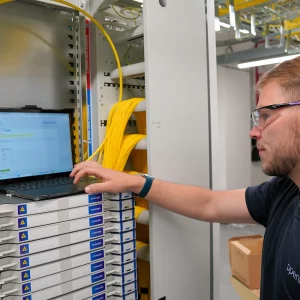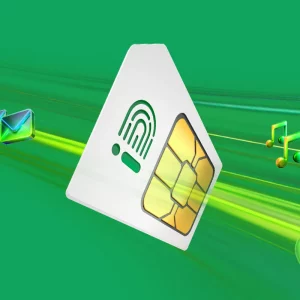Sponsored Links
UPD UK Government Wants to Make ISPs Responsible for Third Party Content Online
Posted: 30th Oct, 2010 By: MarkJ
 The UK governments Minister for Culture, Communications and Creative Industries, Ed Vaizey, has ominously proposed that broadband ISPs could introduce a new Mediation Service that would allow them the freedom to censor third party content on the internet, without court intervention, in response to little more than a public complaint.
The UK governments Minister for Culture, Communications and Creative Industries, Ed Vaizey, has ominously proposed that broadband ISPs could introduce a new Mediation Service that would allow them the freedom to censor third party content on the internet, without court intervention, in response to little more than a public complaint.Vaizey anticipates that internet users could use the "service" to request that any material deemed to be inaccurate or privacy infringing is removed. However we suspect that genuine complaints would probably get lost in a sea of abuse by commercial firms trying to attack freedom of speech and expression.
Ed Vaizey, Speaking at a House Commons Debate on Internet Privacy, said:
Nominet, the charity that is responsible for internet domain names, runs an extremely effective mediation service, so that people who are disputing the ownership of an internet domain name may be involved in a low-cost process to discuss how to resolve that dispute.
It is certainly worth the Government brokering a conversation with the internet industry about setting up a mediation service for consumers who have legitimate concerns that their privacy has been breached or that online information about them is inaccurate or constitutes a gross invasion of their privacy to discuss whether there is any way to remove access to that information.
I am sure that many internet companies will say that that is almost impossible, but when one hears stories such as that told by my hon. Friend the Member for Milton Keynes North, one wants at least to attempt to give consumers some opportunity to have a dialogue with internet companies, as they would be able to do if a newspaper had inadvertently published that information.
Nominet, the charity that is responsible for internet domain names, runs an extremely effective mediation service, so that people who are disputing the ownership of an internet domain name may be involved in a low-cost process to discuss how to resolve that dispute.
It is certainly worth the Government brokering a conversation with the internet industry about setting up a mediation service for consumers who have legitimate concerns that their privacy has been breached or that online information about them is inaccurate or constitutes a gross invasion of their privacy to discuss whether there is any way to remove access to that information.
I am sure that many internet companies will say that that is almost impossible, but when one hears stories such as that told by my hon. Friend the Member for Milton Keynes North, one wants at least to attempt to give consumers some opportunity to have a dialogue with internet companies, as they would be able to do if a newspaper had inadvertently published that information.
We can't help but feel that Vaizey's final paragraph demonstrates a distinct lack of understanding, much as shown with his support for the controversial Digital Economy Act 2010 (DEA). Nominet's dispute system is relatively straightforward, where as asking an ISP to investigate any old gripe against something deemed by another to be "inaccurate" is immensely complicated and time consuming.
Ed Vaizey offered an example situation for his proposal:
I was struck by the comment from my hon. Friend the Member for Milton Keynes North about the women’s refuge centre whose address was put online, and it was then unable to persuade the organisation that was carrying that information to remove it. That organisation had not deliberately put the information online; it was simply the vehicle on which the information was available.
There may be all sorts of reasons why it was difficult to take that information down. It may be that having taken it down, the address simply popped up again elsewhere, but the fact that no meeting or dialogue could take place worries me greatly. I suspect that most hon. Members in the Chamber have had conversations with constituents who have seen information about them online and have simply not known where to turn.
I was struck by the comment from my hon. Friend the Member for Milton Keynes North about the women’s refuge centre whose address was put online, and it was then unable to persuade the organisation that was carrying that information to remove it. That organisation had not deliberately put the information online; it was simply the vehicle on which the information was available.
There may be all sorts of reasons why it was difficult to take that information down. It may be that having taken it down, the address simply popped up again elsewhere, but the fact that no meeting or dialogue could take place worries me greatly. I suspect that most hon. Members in the Chamber have had conversations with constituents who have seen information about them online and have simply not known where to turn.
Ironically Vaizey's argument also works against his proposal by recognising that such information could crop up again almost anywhere and would be very difficult to suppress and control. Physically trying to control general internet content in such a way simply isn't realistic and poses a serious danger to freedom of speech.
At the very least such power should not be placed in the hands of commercial ISPs and should only be used against dangerous content, such as child abuse images or terrorism material; the IWF already does this. In any case an ISP cannot physically delete such content because it does not exist on their networks and blocks are easily circumvented.
UPDATE 2nd November 2010
Comment from the ISPA UK .
An ISPA spokesperson told ISPreview.co.uk:
"UK ISPs already use a system of notice and takedown which means that when an ISP is notified of illegal content hosted on its network or server this content is removed expeditiously.
ISPs also have acceptable use policies and terms of service, which all users agree to adhere to. If a user is found to be in breach of these terms and conditions by acting abusively, ISPs may choose to take action by removing the content. Furthermore, lots of individual sites and chatrooms may choose to monitor content or have report abuse functions to remove abusive material.
ISPA is concerned about the potential for any additional burden on ISPs and questions for example how a mediation service would work with content hosted outside the UK. ISPA will be talking to Government about the work that ISPs already do in this area and commenting in more detail when further information is announced."
"UK ISPs already use a system of notice and takedown which means that when an ISP is notified of illegal content hosted on its network or server this content is removed expeditiously.
ISPs also have acceptable use policies and terms of service, which all users agree to adhere to. If a user is found to be in breach of these terms and conditions by acting abusively, ISPs may choose to take action by removing the content. Furthermore, lots of individual sites and chatrooms may choose to monitor content or have report abuse functions to remove abusive material.
ISPA is concerned about the potential for any additional burden on ISPs and questions for example how a mediation service would work with content hosted outside the UK. ISPA will be talking to Government about the work that ISPs already do in this area and commenting in more detail when further information is announced."
Search ISP News
Search ISP Listings
Search ISP Reviews
Latest UK ISP News








Cheap BIG ISPs for 100Mbps+
150,000+ Customers | View More ISPs
Cheapest ISPs for 100Mbps+
Modest Availability | View More ISPs
Latest UK ISP News
Helpful ISP Guides and Tips
Sponsored Links
The Top 15 Category Tags
- FTTP (6819)
- BT (3888)
- Politics (3083)
- Business (2773)
- Openreach (2670)
- Building Digital UK (2518)
- Mobile Broadband (2482)
- FTTC (2144)
- Statistics (2136)
- 4G (2100)
- Virgin Media (2031)
- Ofcom Regulation (1783)
- 5G (1740)
- Fibre Optic (1605)
- Wireless Internet (1597)
Sponsored
Copyright © 1999 to Present - ISPreview.co.uk - All Rights Reserved - Terms , Privacy and Cookie Policy , Links , Website Rules































